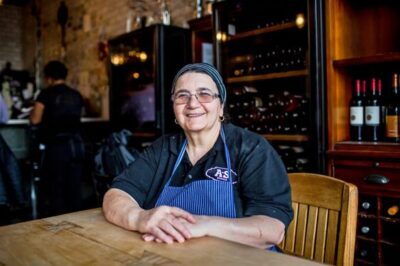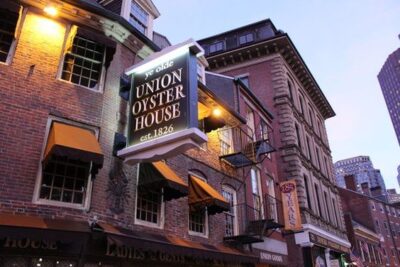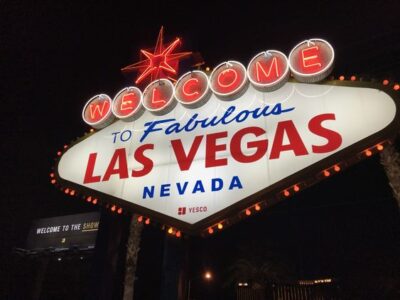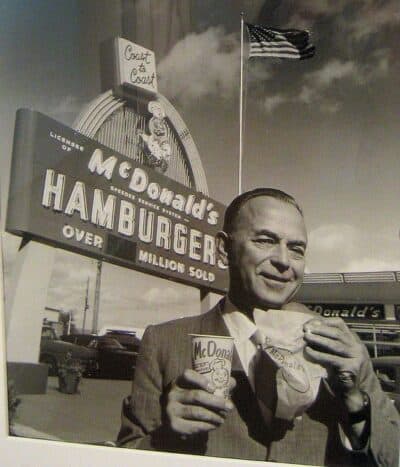Cool Facts You Didn’t Know About the Restaurant Industry
What’s cooler than cool and ice cold? A tapped beer in a chilled mug. What’s stranger than fiction? Starbucks intentionally operates at a loss to not come across as competitive in the market. That’s what’s so great about the world we live in. The WWW (world wide web) gives us access to interesting facts to gain valuable knowledge. The Fliptable team is hard-at-work, building an awesome and revolutionary mobile app designed to take the pain points out of the restaurant industry. Additionally, in steadily working around-the-table, our team also devised some cool facts you didn’t know about the restaurant industry. You know, to spice things up a bit.
One cannot think well, love well, sleep well, if one has not dined well. – Virginia Woolf
Cooking with Grandma
Calling all Nonnas (Italian Grandmothers). Enoteca Maria, A restaurant in Staten Island New York hires grandmothers from around the country to chef up the finest and most authentic Italian cuisine. The unique value proposition? At Enoteca Maria, each grandma hired is given the freedom to use their very own recipes. Enoteca, originally an Italian word that derived from the Greeks, means, wine depository. A nifty and creative word to incorporate into a unique restaurant.

If you’re ever in the Staten Island area and want an intimate, unique and authentic experience, check out Enoteca Maria. Here’s a quick look into their fabulous red wine offerings. Hiring grandmothers over chefs is a unique business model. As unique as it is, it’s a model that draws thousands to the island. The saying goes, “you can’t beat grandmas cooking.” So, stop in and see for yourself.
Restaurants and Ancient Civilization
The simple concept of giving out food in return for currency has been around since ancient Rome and China. Also, in the Middle Ages where bread, fruits, and wines were sold on the streets. This very model is still active and popular today in most cities in markets spread throughout the world. Providing food to others is not only present today, but has been an act and privilege for decades. People need food and will pay for it. Viable business model so long as humans walk the earth.
History of Restaurants
Back in the 18th century, few dwellers could afford kitchens in their home. Before eateries sprung up on every corner, the only place to have a nice meal were inns. If you had additional funds, you could visit specialized Traiteurs (cook caterers), famous for meat and baked breads. A significant amount of history and culture surrounds food and beverages. Food and beverages are resources that we all look forward to at social gatherings and at home. Society consumes and monetizes these resources in various ways.
If more of us valued food and cheer and song above hoarded gold, it would be a merrier world. – J.R.R. Tolkien
Restorative and Resilient
The word “restaurant” derives from the French verb, “restaurer,” meaning to restore. The idea of restaurants started decades upon decades ago. The model has since expanded in so many unique and interesting ways. Originally a word to describe a thick and cheap soup said to heal and restore health, has now turned into a $900 billion dollar industry. Knowing the history, paints a picture of the tremendous evolution of the food service industry.
If you’re a history buff, I recommend you dive into the food industry, there’s so much to learn. If you’re also looking for a unique travel plan, check out all of the oldest restaurants operating today. Add that to your bucket list.
Oldest Restaurant in The U.S.

The oldest restaurant in the U.S. is the Union Oyster House in the 21st most populous city of Boston, Massachusetts. Still operating and surrounded by so much history, the building itself housed other business’s since 1714. Originating in 1826, the menu has not changed. Fun fact: toothpicks in America were first popularized at the Union Oyster House. When you get the chance to visit Boston after a Red Sox game, the Union Oyster House is a cool spot to grab some grub. Here is a list of a neat and historical restaurants that are still operating throughout the U.S.
He was a bold man who first ate an oyster. – Jonathan Swift
Vegas Isn’t Just for Gambling

What happens in Vegas, stays in Vegas. So, when your significant other sees a charge for $5,000 at Fleur in Mandalay Bay, Vegas, it is likely worth the experience. Fleur houses the worlds most expensive burger. Yes, that’s right, for the meat lovers out there, this is quite the expense to treat yourself. The rich mortgage of a burger contains wagyu beef, a mouth-watering tenderized and marble meat, foie grass from the liver of duck and black truffle shavings. Get thirsty? want to celebrate? Perfect, because the burger is served with a bottle of Chateau Petrus from Bordeaux. This would bring a date night to a whole new level.
If you really want to make a friend, go to someone’s house and eat with them him – the people who give you their food, give you their heart. – Cesar Chavez.
When you strike it rich and get bored of playing Russian Roulette, fancy your tastebuds and empty your wallet at Fleur, home of the worlds most expensive burger. Vegas isn’t just about the strip and hitting slots, it’s about a very tasty and very expensive burger – some cool facts that you didn’t know about the restaurant industry.
McDonalds and The Speedy Service System
Two brothers, Richard and James McDonald originally served hot-dogs out of a stand. They didn’t make the change to serve hamburgers until 1948. The McDonald’s brothers made a living out of serving the fastest and cheapest burger, employing low skilled workers, a concept now known as fast-food. Both brothers were born and raised in New Hampshire. Yet, they founded McDonald’s in Bernardino, California. A small hot-dog stand is now a company with almost 40,000 locations, including a UK location owned by Queen Elizabeth. McDonald’s is a significant part of U.S. food and business history that really took off.

From grandmas cooking, street vendors on cobble-stone streets in France, eating oysters from one of the oldest buildings in history, to a $5,000 burger in Vegas, the world is home to so much history relating to the present-day restaurant industry. Fliptable is working around-the-clock to bring to the market a revolutionary mobile app for those looking to hire and seek jobs in the restaurant industry. We are a group of restaurateurs who happen to enjoy the history of food and beverage. From this, we created a list of cool facts you didn’t know about the restaurant industry.
Food history is as important as a baroque church.
Cheers.